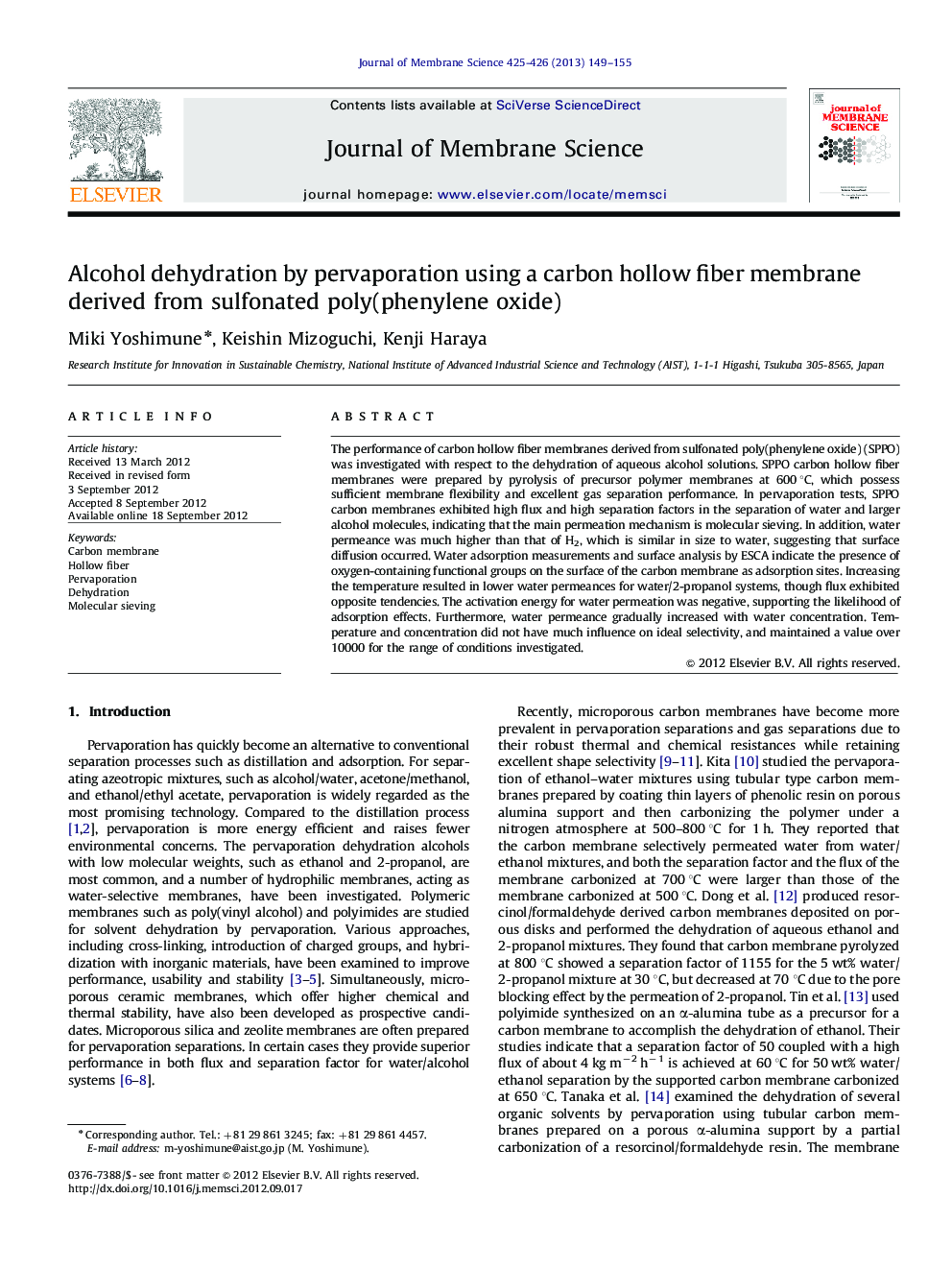| Article ID | Journal | Published Year | Pages | File Type |
|---|---|---|---|---|
| 634727 | Journal of Membrane Science | 2013 | 7 Pages |
The performance of carbon hollow fiber membranes derived from sulfonated poly(phenylene oxide) (SPPO) was investigated with respect to the dehydration of aqueous alcohol solutions. SPPO carbon hollow fiber membranes were prepared by pyrolysis of precursor polymer membranes at 600 °C, which possess sufficient membrane flexibility and excellent gas separation performance. In pervaporation tests, SPPO carbon membranes exhibited high flux and high separation factors in the separation of water and larger alcohol molecules, indicating that the main permeation mechanism is molecular sieving. In addition, water permeance was much higher than that of H2, which is similar in size to water, suggesting that surface diffusion occurred. Water adsorption measurements and surface analysis by ESCA indicate the presence of oxygen-containing functional groups on the surface of the carbon membrane as adsorption sites. Increasing the temperature resulted in lower water permeances for water/2-propanol systems, though flux exhibited opposite tendencies. The activation energy for water permeation was negative, supporting the likelihood of adsorption effects. Furthermore, water permeance gradually increased with water concentration. Temperature and concentration did not have much influence on ideal selectivity, and maintained a value over 10000 for the range of conditions investigated.
► The pervaporation performance of aqueous alcohol solutions was investigated using a carbon hollow fiber membrane. ► The carbon membrane displayed superior selectivity to water against larger alcohols. ► The high water permeance was obtained due to the effect of surface diffusion in addition to molecular sieving.
